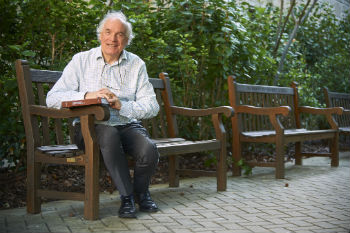Do collaboration skills trump construction skills as the hallmark of good engineering? James Trevelyan, Professor at the School of Mechanical and Chemical Engineering, University of Western Australia asks.

It’s often said that engineers build bridges, cars, highways, aircraft and so on. In reality, few engineers build anything at all: they hardly ever have their hands on anything other than their phone, pens and paper, the wheel of their car and computer keyboards.
All these artefacts of human civilisation emerge because engineers collaborate with other people. Not only the people who actually do the hands-on construction and operations, but also investors, planners, owners, contractors: a whole symphony orchestra of people collaborating in a combined engineering performance, coordinated and conducted by engineers, mostly without organisational authority.
Over the past 12 years, with a team of colleagues, postgraduate and other research students, I have researched engineering practice in four different countries. Hundreds of engineers have been involved in this research in Australia, India, Pakistan and Brunei. Together we have identified fundamental principles of engineering practice by interviewing and observing engineers in their workplaces.
We found a few engineers who perform at exceptional levels compared with most others: expert engineers. I spent a lot of my time trying to understand how they were working and thinking differently. From this came the title of my book
The Making of an Expert Engineer, which explains the results of our research in an accessible style for engineers and all the other people who work with them.
Findings: what makes a real engineer?
Often when I interviewed engineers, the response would be something like: “Why are you talking to me? I hardly ever do any real engineering”.
When I asked them what they meant by real engineering, the response was almost always similar: “Design, calculations, technical problem solving, the things we learned to do at university”.
Even for engineers in specialised technical roles, the “real engineering” seemed to occupy only a small portion of their time.
So, what about the rest of their time? As one put it eloquently, “The rest is mostly random madness”.
Research tells a different story. Between 60–80 per cent of the time spent by most engineers is devoted to technical collaboration. Specialised technical knowledge is critical, just as a musical score is critical in an orchestral performance. No two musicians will play the same piece of music in exactly the same way: even the same musician will play the same piece differently on a different day.
Engineers have to make sure that everyone who implements the technical requirements does so in ways that are sufficiently aligned with the original intentions so that the end result will meet the investors’ expectations well enough for the investors and end users to be happy with the result. This is more complex than it seems: few engineers have
complete and detailed knowledge of every aspect of implementation.
The specialised knowledge needed for any given engineering enterprise to succeed is distributed in the minds of the participants and can only be accessed by appropriate collaboration.
Many other people such as suppliers, contractors and tradespeople, even clients and end-users, need
to contribute their special skills and knowledge along the way.
Working together
We have identified several different socio-technical performances that make this work. The predominant one is technical coordination – arranging the willing and conscientious collaboration of people with special skills and knowledge to perform aspects of the work to an agreed schedule, almost always without any kind of authority. This seems to take 25–30 per cent of the time of most engineers.
Project management is much the same in principle, but unlike technical coordination is a more formal, documented process with activities involving many more people in a coordinated performance.
One of the most common sociotechnical performances is teaching: helping other people understand how to interpret and implement the technical requirements in the light of specialised knowledge. This learning can be a mutual discovery performance, sometimes resulting in new knowledge and understanding, a process known as distributed cognition.
Specialised technical documents are another crucial ingredient of technical collaboration: examples include project scoping documents, project plans and specifications. One of the most intriguing results from our research was the realisation that technical problem-solving often involves complex negotiations involving many stakeholders. This result has also emerged from recent US research in the automotive industry.
Crucial requirements
Sounds complex? The good news is that advances in the social sciences, learning sciences and psychology over the past few decades can be applied to help engineers learn to collaborate much more effectively. However, the first necessary step is to realise that specialised knowledge is a crucial factor.
All too often collaboration skills are taught without any reference to technical knowledge: it is assumed that these skills are simply a branch of management and organisation science. Now project management is taught in almost complete isolation from the technical contexts where it emerged and key components such as technical specifications,
test and inspection plans and many others have gone missing.
The next step is a tough one for engineers. We have to accept that people interpret words differently depending on the context and the situation they find themselves in: there is no absolute when it comes to the meaning of words.
The research provides plenty of evidence that engineers who master these collaboration skills can look forward to much more rewarding careers, not only for themselves but also for their employers and clients.